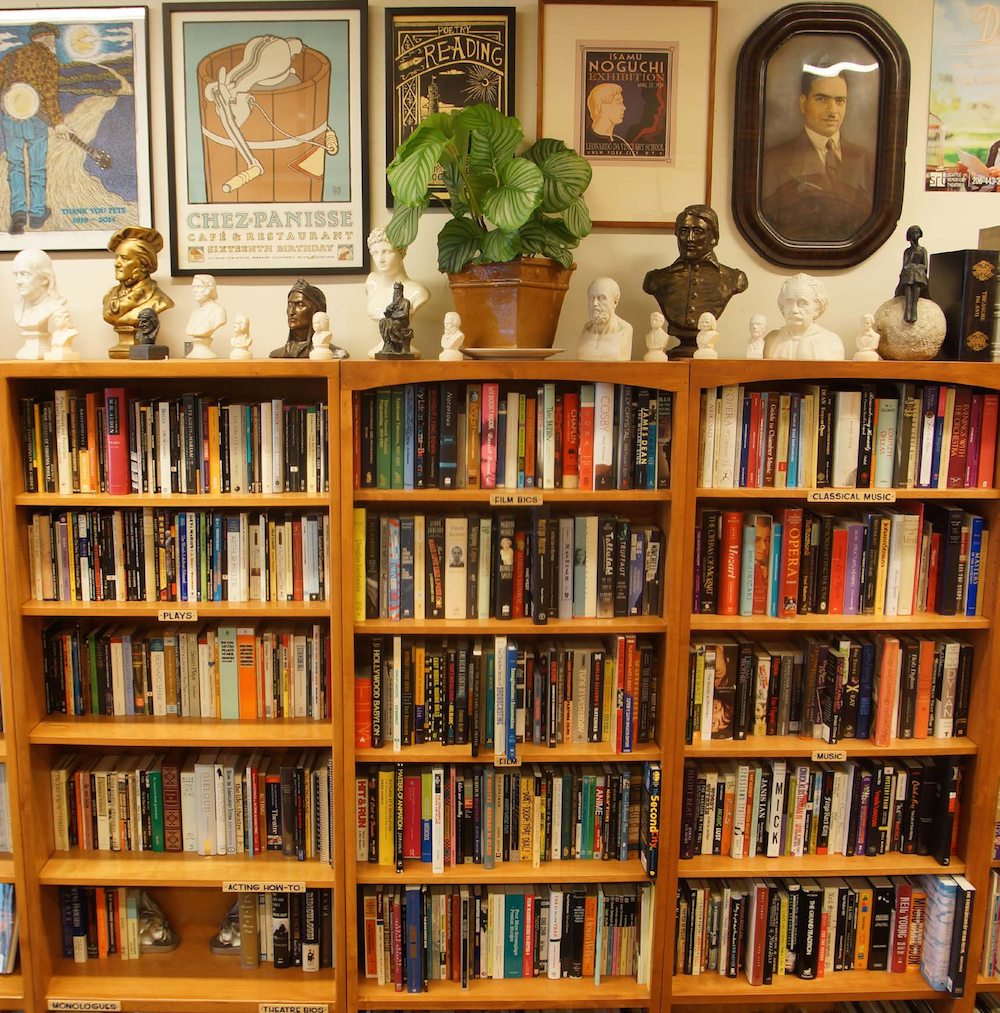Everything has its place at Mercer Street Books

Though Debbie Sarow never imagined herself as a small business owner, her days as a bookseller were punctuated with little fantasies about what she would do if she ever ran her own bookstore.
One example comes immediately to mind. “I decided early on that if I had my way, I would put the graphic novels next to the art books,” Sarow tells me. “Everybody puts the graphic novels next to the humor books,” she says, presumably because humor books are often profusely illustrated. But as anyone who’s ever read comics knows, they’re not all funny but they are all about the interaction of words and art. When Sarow surprised herself by opening Mercer Street Books, she knew exactly where the graphic novel section would go: right next to the art books at the front of the store.
This might strike you as an insignificant detail, but Sarow puts a considerable amount of thought into all the little details of Mercer Street Books. She gives me a tour of all the sections, explaining why they all flow from one to the other: poetry into mythology into memoirs into writing books into plays into entertainment.
“The fun parts” of bookstore section placement, she says, “were accidental. Science fiction runs into horror, which you would expect. And then we have sociology to psychology — the ologies — and that feeds into health and parenting, and it ended up going sexuality, weddings, parenting, and education, because that’s what people do. And people come up to me and say, ‘I love that you put parenting next to the horror section.’ I did! But that part was not intentional.”
At the front of the store is an old, wooden card catalog. Inside the small drawers, where many customers would never think to look, are beautiful little objects for sale. Some of the items make sense for a bookstore to carry — a pack of playing cards, a pocket-sized French/English dictionary. Others are just weird little treasures: a pair of glass doorknobs, a vintage flashlight, a few wood-and-metal instruments of unknown provenance.
Sarow says the card catalog full of tiny wonders is her answer to all the booksellers who told her that a healthy bookstore should have a thriving sideline business. (“Sidelines” is the technical term for all those non-book items, like pens and games and cards and too-expensive book lights, that you find by the cash registers at most bookshops.)
“I like having a bookstore that’s a bookstore,” she says, “instead of a bookstore full of sidelines.” Once, on finding out that Sarow didn’t carry a single stuffed animal or plastic toy for sale at Mercer Street Books, someone remarked, “what are you going to do for kids?” Sarow tells me, “the kids will have to be happy with books. It’s a bookstore. It’s not a bookstore and a toy store.”
Sarow understands, definitively, what Mercer Street Books is. You get the sense that it’s the bookstore she’s had in her mind for her entire life, and now she’s finally, happily, crafting that idea into reality.